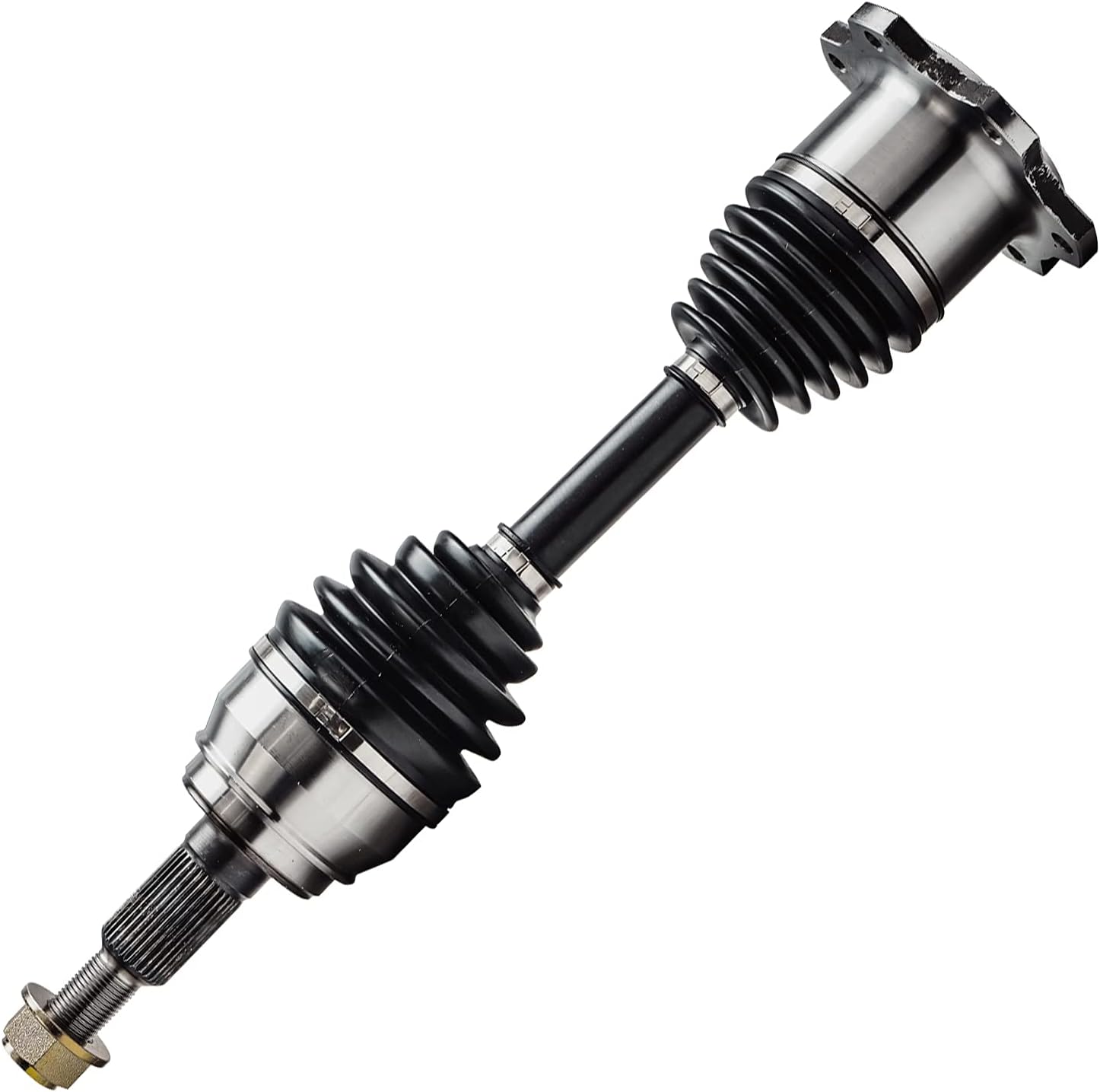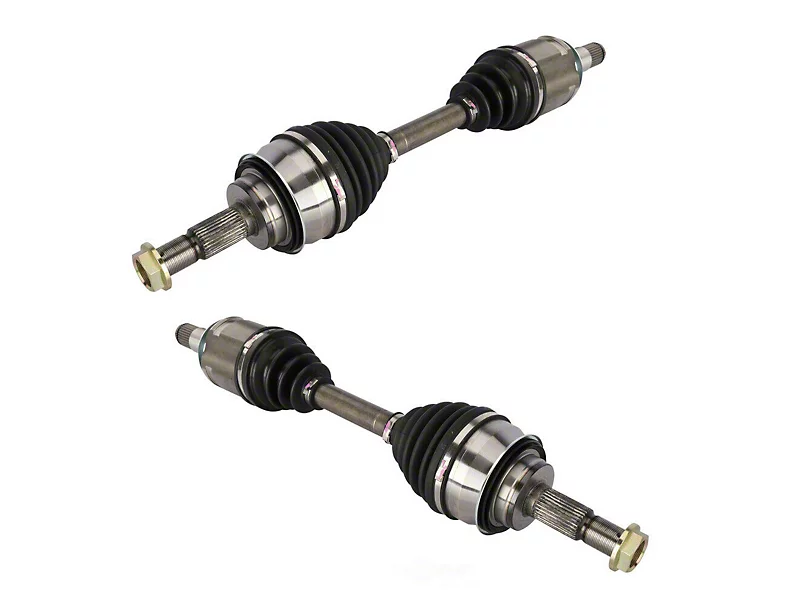
Where can I find reputable sources for troubleshooting CV axle noises or vibrations?
When experiencing CV axle noises or vibrations, it’s important to consult reputable sources for accurate troubleshooting guidance. Here are some places where you can find reliable information to help troubleshoot CV axle issues:
1. Vehicle Manufacturer’s Official Website:
Start by visiting the official website of your vehicle’s manufacturer. They often provide comprehensive resources, including troubleshooting guides, technical articles, and maintenance manuals. Look for the section specific to your vehicle model and search for information related to CV axle noises or vibrations. The manufacturer’s website is a reliable source of information as it offers insights directly from the vehicle’s designers and engineers.
2. Online Forums and Communities:
Online automotive forums and communities can be valuable sources of information for troubleshooting CV axle issues. Websites such as Reddit, CarTalk, and various enthusiast forums dedicated to your specific vehicle make or model can provide insights from experienced car owners, mechanics, and enthusiasts who have encountered similar problems. Search for threads or posts related to CV axle noises or vibrations and read through discussions to gain valuable troubleshooting tips and solutions.
3. Repair Manuals or Service Guides:
Repair manuals or service guides specific to your vehicle can offer detailed information on troubleshooting and diagnosing CV axle issues. These manuals provide step-by-step instructions, diagrams, and specifications that can help you identify the root cause of the problem. You can find these manuals in printed form from automotive bookstores or online platforms that offer digital versions. Popular sources include Haynes Manuals, Chilton Manuals, and vehicle manufacturer’s official service manuals.
4. Automotive Websites and Blogs:
There are numerous reputable automotive websites and blogs that publish articles and guides on troubleshooting various car-related issues, including CV axle problems. Websites like AutoZone, RepairPal, and YourMechanic often provide detailed explanations, diagnostic procedures, and possible solutions for common CV axle noises or vibrations. These sources typically have a team of automotive experts or professional mechanics who contribute to their content, ensuring reliable information.
5. Professional Mechanics and Repair Shops:
If you are unable to diagnose or resolve the CV axle issues on your own, it’s best to consult with a professional mechanic or take your vehicle to a reputable repair shop. Mechanics have the expertise, experience, and specialized tools to accurately diagnose and troubleshoot CV axle problems. They can provide professional guidance and perform necessary repairs or replacements to resolve the issue effectively.
Remember to cross-reference information from multiple sources to ensure accuracy and reliability. Troubleshooting CV axle noises or vibrations can vary depending on the specific symptoms and vehicle make or model, so it’s important to consider various perspectives and expert opinions to make an informed diagnosis.
In summary, reputable sources for troubleshooting CV axle noises or vibrations include the vehicle manufacturer’s official website, online forums and communities, repair manuals or service guides, automotive websites and blogs, as well as professional mechanics and repair shops. Utilize these sources to gather reliable information and guidance for troubleshooting and resolving CV axle issues in your vehicle.

What is the impact of lifted or lowered suspension on CV axle angles and longevity?
Lifting or lowering a vehicle’s suspension can have a significant impact on the angles and longevity of CV axles. Here’s an explanation of how lifted or lowered suspension affects CV axle angles and longevity:
1. Lifted Suspension:
When a vehicle’s suspension is lifted, either through the use of taller springs, spacers, or suspension modifications, it can result in increased CV axle angles. The higher ride height alters the geometry of the suspension system, causing the CV axles to operate at more severe angles. This increased angle can lead to several effects:
a. Increased Wear and Stress: The higher CV axle angles in a lifted suspension setup can increase wear and stress on the CV joints and boots. The joints are forced to operate at more extreme angles, which can accelerate wear and potentially lead to premature failure. The constant articulation and operating angles can cause the CV boots to wear out faster, increasing the risk of contamination and damage to the CV joints.
b. Binding and Limited Articulation: In extreme cases, excessive lift can cause the CV axles to bind or reach their maximum operating angles, limiting the suspension’s articulation. This can result in reduced wheel travel, compromised off-road performance, and potential damage to the CV axles if the binding is severe.
c. Axle Shaft Length: In some lifted suspension setups, longer axle shafts may be required to accommodate the increased ride height. Longer axle shafts can help maintain proper CV axle angles and prevent excessive stress on the joints. It’s important to ensure that the correct length axle shafts are installed to maintain optimal CV axle operation.
2. Lowered Suspension:
Lowering a vehicle’s suspension, typically achieved through shorter springs, modified suspension components, or aftermarket kits, also affects CV axle angles and longevity. Here are some considerations:
a. Decreased CV Axle Angles: Lowering the suspension reduces the ride height of the vehicle, which can result in decreased CV axle angles. The reduced angles may alleviate some stress on the CV joints and boots, potentially leading to improved longevity.
b. Ground Clearance Concerns: Lowering a vehicle’s suspension may decrease ground clearance, making the CV axles more susceptible to potential impacts from road debris, speed bumps, or uneven surfaces. It’s important to consider the potential risks of reduced ground clearance and take appropriate measures to protect the CV axles, such as installing skid plates or ensuring proper alignment.
c. Suspension Geometry Adjustments: Lowering the suspension often requires adjustments to suspension geometry to maintain proper alignment. Incorrect suspension geometry can lead to increased CV axle angles, premature wear, and potential damage. It’s crucial to consult with a professional mechanic or suspension specialist to ensure proper suspension geometry adjustments are made when lowering the vehicle.
Regular Maintenance and Inspection:
Regardless of whether the suspension is lifted or lowered, it’s essential to regularly inspect and maintain the CV axles. This includes checking the CV boots for tears or damage, ensuring proper lubrication, and monitoring for any abnormal noises or vibrations during operation. Regular maintenance can help identify potential issues early and prevent further damage to the CV axles.
In summary, lifting or lowering a vehicle’s suspension can affect the angles and longevity of CV axles. Lifted suspensions can increase CV axle angles, leading to increased wear and stress, while lowered suspensions can potentially decrease angles but may present ground clearance concerns. Proper installation, alignment, and regular maintenance are crucial to mitigate the impact of suspension modifications on CV axle angles and longevity.

Can you recommend reliable brands for purchasing replacement CV axles?
When it comes to purchasing replacement CV axles, it’s important to choose reliable brands that offer quality and durability. While there are several reputable brands available in the market, here are some well-known and trusted brands that specialize in manufacturing CV axles:
- GSP North America: GSP North America is a leading manufacturer and supplier of CV axles, driveshafts, and related components. They offer a wide range of CV axles that are engineered to meet or exceed OEM specifications. GSP North America is known for their high-quality products and has been a trusted brand in the automotive industry for many years.
- Detroit Axle: Detroit Axle is another reputable brand that offers a variety of CV axles for different vehicle makes and models. They provide reliable and affordable replacement axles that are designed to deliver performance and durability. Detroit Axle products are known for their quality and are often recommended by automotive professionals.
- Cardone: Cardone is a well-established brand in the automotive aftermarket industry. They offer a wide range of remanufactured CV axles that undergo rigorous testing and quality control processes. Cardone CV axles are known for their reliability and come with a limited lifetime warranty, providing peace of mind to buyers.
- ACDelco: ACDelco is a trusted brand that offers a diverse range of automotive parts, including CV axles. ACDelco CV axles are designed to meet OEM standards and undergo thorough testing to ensure quality and performance. Their axles are known for their durability and are often used as direct replacements for original equipment.
- Empi: Empi is a brand that specializes in producing CV axles and other drivetrain components for various vehicles, including off-road and performance applications. They offer a wide range of high-quality CV axles that are designed to withstand demanding conditions. Empi is well-regarded among enthusiasts and professionals in the automotive industry.
It’s important to note that the availability of specific brands may vary depending on your location and the vehicle make and model. When purchasing replacement CV axles, it’s recommended to ensure that the axles are compatible with your vehicle and meet the necessary specifications.
Additionally, it’s advisable to consult with a trusted mechanic or automotive professional who can provide guidance and recommendations based on their experience and expertise. They can help you select the most suitable brand and product for your specific vehicle and ensure a reliable replacement of your CV axles.


editor by CX 2023-12-07